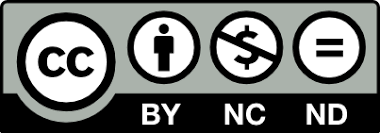PLAGIARISM AS A WIDESPREAD PHENOMENON AMONG SECOND-LANGUAGE LEARNERS AT TBILISI STATE UNIVERSITY
Keywords:
plagiarism, presentations, academicAbstract
Plagiarism is claimed to plague academic realm on a world scale. Georgia is no exception in that respect. Tbilisi State University (TSU) is taking the issue of plagiarism very seriously which is manifested in the measures adopted by the institution to tackle the problem. The university policies regarding plagiarism viewed as a phenomenon of an academic misconduct are constantly becoming stricter and stricter. The article deals with one of the forms of plagiarism used by TSU students in their assignments, specifically, in their presentations. Presentations, an obligatory form of assessment in nearly all syllabi at the university are frequently characterized by poor referencing, inaccurate citation, when often the whole chunks of text are directly taken from the original sources without any periphrasis or indication of the source. The research focuses on aforementioned instances of plagiarism, their causes and strategies for solving the problem. As a part of conducted research were studied presentations prepared by students at two different faculties (Humanities and Economics) doing English language courses (General English and EAP). Also, students were interviewed online.
Full Text (PDF)
References
P.org, (2017). What is Plagiarism? Retrieved from https://plagiarism.org/article/what-isplagiarism
Erazmus.org.ge, Publications, (2016) The problem of Plagiarism and its Perception in Georgia. Retrieved from http://erasmusplus.org.ge/files/publications/Research%20Projects/ENG/Plagiat%20-%20en%20-%202016.pdf
University of Cambridge, (2021). Plagiarism and Academic Misconduct. Retrieved from https://www.plagiarism.admin.cam.ac.uk/
Cambridge Assessment, (2013). Detecting Cheating and Plagiarism. Retrieved from https://www.cambridgeassessment.org.uk/Images/detecting-cheating-and-plagiarismpresentation.pdf
Cambridge Assessment International Education, (2021). Preventing Plagiarism – Guidance for Teachers. Retrieved from https://www.cambridgeinternational.org/support-and-training-forschools/support-for-teachers/teaching-and-assessment/plagiarism/
Open Society Georgia Foundation, (2017). Plagiarism in Georgian Academic World. Retrieved from https://osgf.ge/en/plagiarism-in-georgian-academic-world-preventionand-fight/
TSU.ge Quality Assurance, Academic Integrity for Quality Teaching and Learning in Higher Education Institutions in Georgia (INTEGRITY) Retrieved from https://www.tsu.ge/en/quality-assurance/page/Completed-Project
Published
How to Cite
License
Copyright (c) 2021 Online Journal of Humanities ETAGTSU

This work is licensed under a Creative Commons Attribution-NoDerivatives 4.0 International License.












